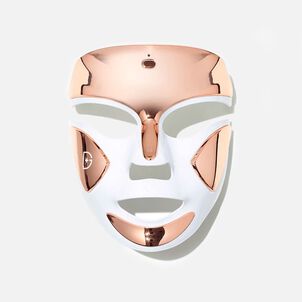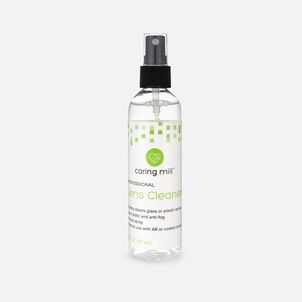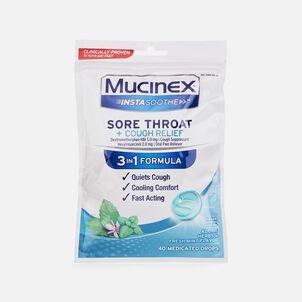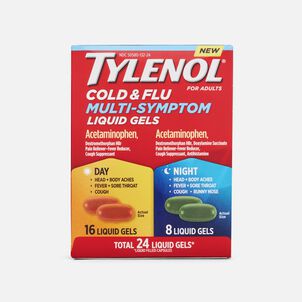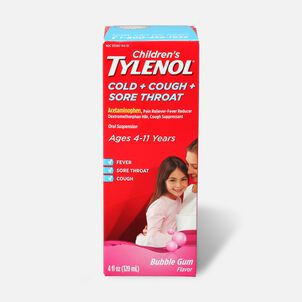 | SHOP NOW
| SHOP NOWMore data always helps.
If you're cooking, knowing the exact temperature of your oven will help you bake a better cake. If you're in the woodshop, knowing the precise measurements needed for each cut will help you build a better table. The same principle holds true for your health.
As technology advances, we're finding faster, more accurate ways to measure everything about our bodies - often from the comfort of our own home. This data can help us make smarter decisions about our health, like when to go to the doctor, what foods to eat and how to optimize our sleep.
Many of these health and wellness tracking products can be purchased with funds from your HSA. Here are seven of the most popular.
1. Blood glucose monitor
If you have diabetes, you're used to measuring your glucose levels on a daily basis. But you may not know that you can use your HSA card to pay for a blood glucose monitor, lancing device, lancets and test strips. These supplies may be partially covered by insurance, but you can use your HSA to pay the remaining cost.
You can save money by buying these test strips in bulk. The toll of diabetes maintenance is notoriously expensive, so using your HSA funds is one way to mitigate the cost.
2. Fertility monitor
Most types of fertility monitors are HSA eligible, including pregnancy tests, ovulation monitors and sperm test kits.
Fertility tests measure your basal body temperature to see if you're ovulating. Ovulation is the best time in a woman's cycle to conceive, so you need to know when ovulation is occurring if you're trying to have a baby.
Progesterone testing strips are also HSA eligible. These strips calculate the amount of progesterone in a woman's body, which can also indicate ovulation. Ask your ob-gyn about the best way to track ovulation.
Sperm test kits measure a man's sperm count. If you've been trying to get pregnant and have been unsuccessful, measuring sperm count is a good place to start. If the test shows a low sperm count, you can ask your doctor about any possible remedies.
If you're trying to conceive, then you know that buying pregnancy tests can get very expensive, very quickly. You can also buy pregnancy tests with your HSA card.
3. Blood pressure and EKG monitor
If your doctor recommends that you measure your blood pressure regularly, it may be worthwhile to buy a blood pressure monitor. At-home blood pressure monitors are HSA eligible, including smart monitors that deliver results to a mobile app.
These days, there are also blood pressure monitors with bonus EKG functionality.
If you're prone to Atrial fibrillation (AFib), an EKG can tell you when you're having an AFib episode. These combination devices also qualify for HSA reimbursement.
4. Oxygen monitor
Oxygen monitors, also known as oximeters or pulse oximeters, are used to measure the amount of oxygen in your blood. If you have a chronic lung disease or condition, you may use a monitor or oximeter to determine oxygen levels.
Patients diagnosed with COVID-19 may also want to track their oxygen levels to ensure they're still within the normal range. One of the most severe symptoms of COVID-19 is decreased oxygen to the lungs.
5. At-home COVID-19 test
Even though the distribution of COVID-19 vaccines has already begun, the pandemic is nowhere close to being over.
Getting a COVID-19 test can be difficult, especially if you have limited transportation options or if local testing sites are busy. Instead of calling around to find a testing location, you can buy an at-home COVID-19 test with your HSA funds.
The myLAB Box COVID-19 At-Home Viral Detection Test includes one saliva test, and promises results within 24 hours of being received. A free overnight shipping label is included.
The test only takes five minutes to complete. Because it doesn't require a nasal swab, it's also much less invasive than the regular COVID test. This makes it a good substitute if your child is showing COVID-19 symptoms, but won't tolerate a nasal swab.
The test is FDA-authorized and comes with a free physician consult if you test positive. Other at-home COVID-19 tests are currently in development or awaiting FDA approval - some that can give results on the spot - so check back with us to see if they become HSA eligible.
6. Heart rate monitor
Heart rate monitors do exactly what it sounds like they do - track your heart rate. While fitness tracking watches like Fitbits are not HSA eligible, basic heart rate monitors are.
Most people use heart rate monitors to measure their heart rate during exercise. If you want to maximize your cardio workout, using a heart rate monitor can help.
7. Gluten sensor
People with Celiac disease need to be careful of what they eat. Instead of blindly trusting restaurants and food manufacturers to be honest, you can use a gluten sensor to detect any gluten in your food.
A gluten sensor is HSA eligible and a useful tool to bring on vacation, when you're dining out or even when you're eating at home. Instead of trusting food labels, you can verify the gluten content of the ingredients yourself.
This device easily fits in a purse or bag. Here's how it works. Take a bit of food and insert it into the food capsule. Put the capsule into the sensor and wait between two to three minutes. The device will then tell you if it detects any gluten.
Why other fitness trackers don't qualify
Even though Fitbits and Apple Watches measure important health data, they currently do not qualify for HSA reimbursement, as they are considered for general health use and not intended to treat or manage a specific medical condition. Even if your doctor recommends that you buy one of these devices, you still won't be able to use your HSA card.
If you do purchase one of these fitness trackers with your HSA card, you risk potentially having to pay a 20% penalty for a non-qualified expense and income tax on the amount. HSA rules do change frequently, so follow the news to see if these fitness trackers eventually become HSA eligible.
-
Thank you for visiting the HSA Store Learning Center! Don’t forget to follow us for more helpful tips on Facebook, Instagram, and Twitter!











